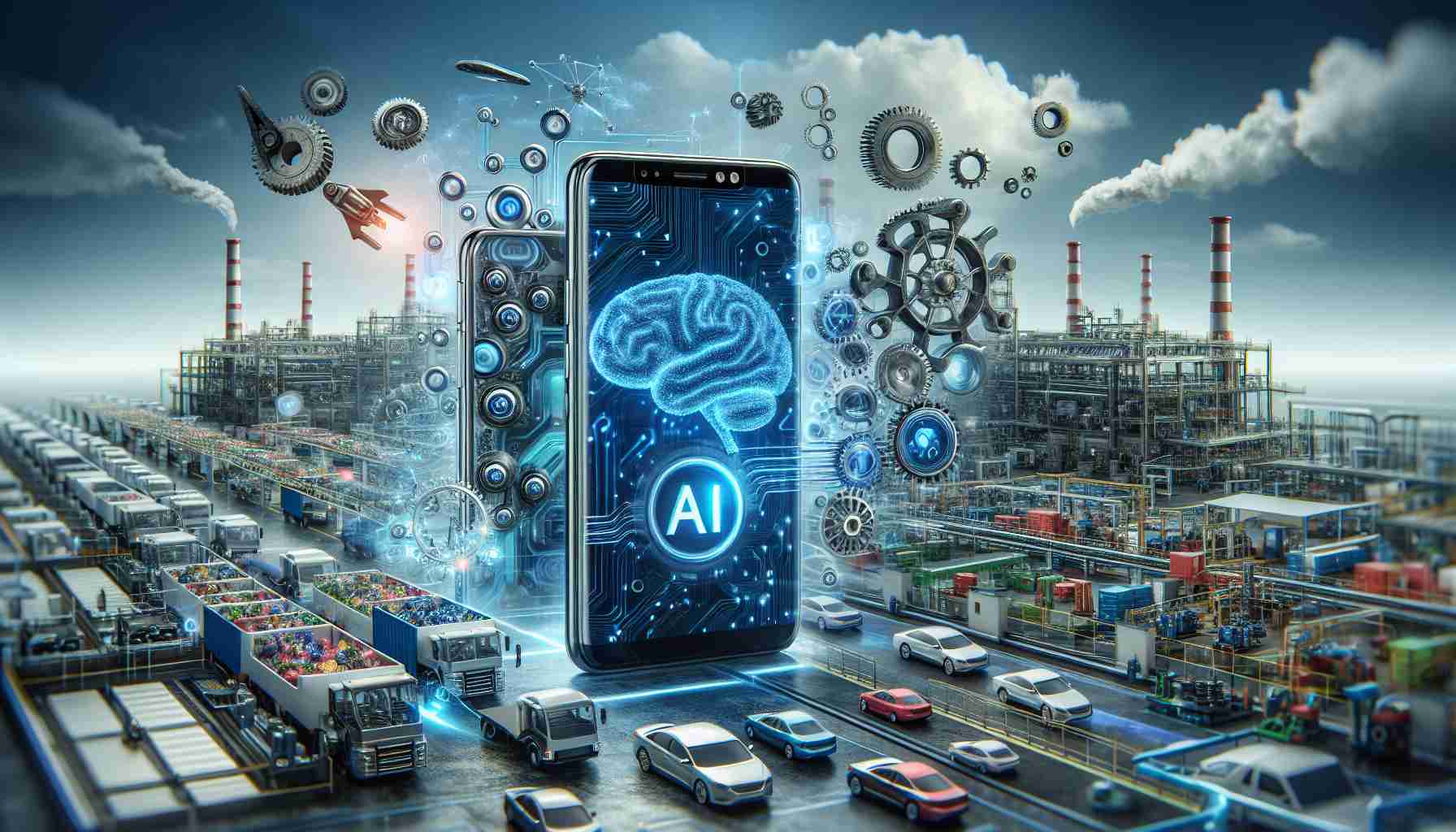The rapid advancement of artificial intelligence (AI) has revolutionized various industries, and the smartphone market is no exception. AI technology has transformed smartphones into intelligent personal assistants, capable of understanding and adapting to individual needs. Voice assistants like Siri, Google Assistant, and Bixby are now commonplace, but AI also powers various features such as computational photography, personalized content feeds, facial recognition, and fraud detection, enhancing user interactions and security.
A key trend in the market is the rise of edge AI, where data processing is performed on the device itself rather than relying on cloud services. This approach reduces latency, increases privacy, and allows smartphones to handle complex AI tasks more efficiently. Smartphone manufacturers are investing heavily in integrated circuits with dedicated AI processors (AI chipsets) to support this trend.
Industry forecasts suggest that AI will continue to transform the smartphone landscape. Advanced machine learning models will enable real-time language translation, more interactive augmented reality experiences, and AI-powered network services leveraging the expansion of 5G technology. These advancements will provide users with powerful AI capabilities without straining the smartphone’s hardware.
However, the integration of AI into smartphones also brings challenges and controversies. Privacy and security concerns arise as AI systems handle and process sensitive personal data. The ethical implications of AI’s influence on human behavior and decision-making are being debated, with concerns about dependence on technology leading to a loss of autonomy. Additionally, the cost of high-end AI-integrated devices may widen the digital divide, limiting access to the latest technology for some users.
While the advantages of AI integration in smartphones are vast, it is important to consider the potential drawbacks. Issues such as privacy, cognitive skill decline, and job displacement need attention and careful management.
To stay informed about the latest AI developments in the smartphone industry, trusted sources like Wired and TechCrunch offer valuable insights into technological advancements, market analyses, and expert opinions. These sources provide excellent resources for those seeking a deeper understanding of the intersection between AI and smartphones.
In conclusion, AI integration is transforming smartphones into intelligent companions. Despite challenges and controversies, the future of AI in smartphones promises a more personalized, efficient, and interactive user experience.
The smartphone industry has been greatly impacted by the rapid advancement of artificial intelligence (AI). This technology has resulted in the development of intelligent personal assistants and various features that enhance user interactions and security. Voice assistants like Siri, Google Assistant, and Bixby have become commonplace, while computational photography, personalized content feeds, facial recognition, and fraud detection are powered by AI.
One significant trend in the smartphone market is the rise of edge AI, where data processing occurs on the device itself instead of relying on cloud services. This approach offers benefits such as reduced latency, increased privacy, and improved efficiency in handling complex AI tasks. Smartphone manufacturers are heavily investing in AI chipsets, integrated circuits with dedicated AI processors, to support this trend.
Industry forecasts predict that AI will continue to transform the smartphone landscape. Advanced machine learning models will enable real-time language translation, interactive augmented reality experiences, and AI-powered network services leveraging the expanding 5G technology. These advancements will provide users with powerful AI capabilities without putting excessive strain on the smartphone’s hardware.
However, the integration of AI into smartphones also presents challenges and controversies. Privacy and security concerns arise as AI systems handle sensitive personal data. The ethical implications of AI’s influence on human behavior and decision-making are being debated, with concerns about technology dependence leading to a loss of autonomy. Additionally, the cost of high-end AI-integrated devices may contribute to a digital divide, limiting access to the latest technology for some users.
While the advantages of AI integration in smartphones are substantial, it is crucial to consider the potential drawbacks. Issues such as privacy, cognitive skill decline, and job displacement require attention and careful management.
To stay informed about the latest AI developments in the smartphone industry, trusted sources like Wired and TechCrunch offer valuable insights into technological advancements, market analyses, and expert opinions. These sources provide excellent resources for those seeking a deeper understanding of the intersection between AI and smartphones.
In conclusion, AI integration is revolutionizing smartphones, turning them into intelligent companions. While there are challenges and controversies, the future of AI in smartphones promises a more personalized, efficient, and interactive user experience.
The source of the article is from the blog exofeed.nl
